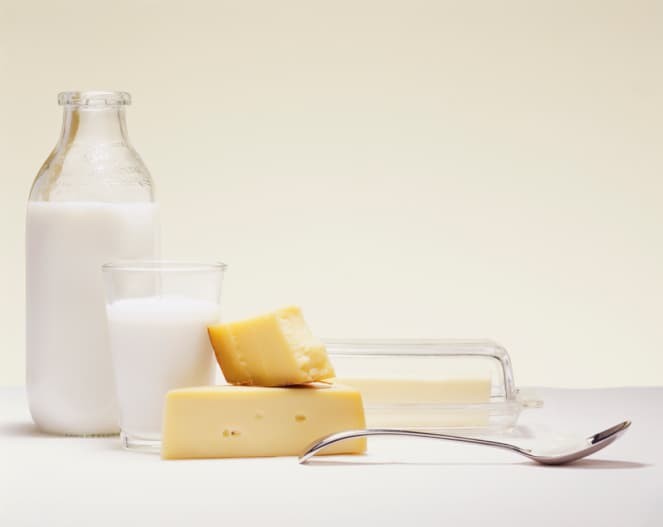
Dairy products are a staple of many diets but are they really as good for us as we've been told? We look at both sides of the dairy debate in order to provide a balanced overview of its nutritional benefits.
Benefits of Eating Dairy
Dairy products have a wide range of nutritional benefits, some of which you may not expect. For example, dairy foods can actually help with weight loss. Research has shown that people who have a diet rich in dairy tend to weigh less and have less body fat that those who avoid dairy. This is due to a hormone called calcitriol. If the body does not get enough calcium from the diet, calcitriol is produced to help the body to preserve calcium. However, while calcitriol helps to preserve calcium, it also stimulates the production and storage of fat, while reducing the rate of fat breakdown. Simply getting enough calcium in the diet prevents this from happening. Calcium also helps with thermogenesis, helping the body to burn more energy, thus burning fat and losing weight. If you want to include dairy foods as part of your weight loss plan, it is best to consume reduced-fat products in order to minimise the amount of saturated fat that you are ingesting.
Dairy products are also excellent for bone health, helping to prevent osteoporosis. This is because taking in enough calcium-rich foods such as milk, cheese, and yogurt helps to increase the bone acquisition during the bone’s growing stages, helps slow age-related bone loss, and it also reduces the risk of suffering from an osteoporotic fracture. It is especially important to eat dairy products in the earlier years of life as a person’s peak bone mass is reached by the time they are in their twenties. Attaining peak bone mass is important in the later adult years, especially for women that have gone through menopause. As well as calcium, dairy products are also sources of phosphorus, vitamin D (if they have been fortified), magnesium, and protein, which are all useful for bone health.
Dairy products can also be useful for the heart. There is scientific evidence to show that increasing the levels of dairy products or calcium that you consume can lower the risk of suffering from hypertension and lower blood pressure. This occurs best when the calcium is obtained from the diet rather from a supplement. Nutrients such as potassium and magnesium, which are found in dairy products alongside calcium, also have effects on blood lipids, and body weight, which can help to protect against heart disease.
Consuming dairy products can also help to reduce your risk of suffering from a condition known as Metabolic Syndrome, which is also known as insulin resistance. This syndrome is a combination of high cholesterol, high blood pressure, high body fat, and high glucose levels. People that suffer from this have a higher chance of getting heart disease, stroke, or diabetes. People that drink milk or consume other dairy products have a significantly lower chance of getting Metabolic Syndrome than those that do not eat dairy products at all.
Possible Disadvantages of Eating Dairy
While there have been many studies showing the benefits of dairy products, there are also some that make the argument that dairy products are unnecessary to the diet and can in fact be harmful. For example, it is recommended children that are under a year old do not drink cow’s milk, as iron deficiency can be more likely to occur on a diet that is rich in calcium. The proteins, sugar, and fat in milk may also lead to the development of diseases such as obesity, heart disease, and diabetes.
There is also concern about contaminants that could be found in the milk. Such contaminants may include antibiotics, pesticides, and synthetic hormones. These can have a harmful effect on the body, especially over time.
It is interesting to note that some researchers have found that the countries that have the highest intake of calcium also have the greatest rates of osteoporosis and hip fractures, while countries that consume less calcium have fewer fractures. This may be related to the level of physical activity that is undertaken rather than the amount of calcium consumed.
To maintain the level of calcium in our bones, it is crucial to prevent calcium loss, and one of the greatest causes of calcium loss is actually a high protein diet. This is because protein, and especially protein from animal sources, makes the urine acidic. The body attempts to remedy this acidity by drawing calcium from the bones, as calcium is alkaline. Many people eat as much as double the amount of recommended daily protein, and this can mean that you are losing more calcium through urine than you are retaining in the body.
Lactose intolerance is also increasingly common, with symptoms such as gastrointestinal distress, diarrhea, and flatulence. Lactose intolerance occurs when a person does not have the necessary enzymes to digest a sugar in milk known as lactose. Consult a nutritionist for further advice on this condition.
|
Do you have a natural health & wellness business? |









